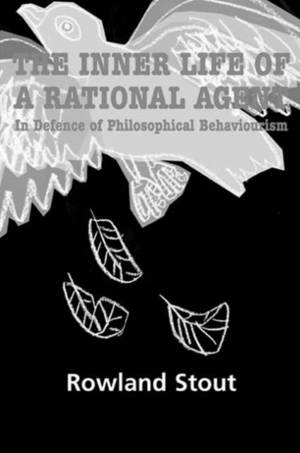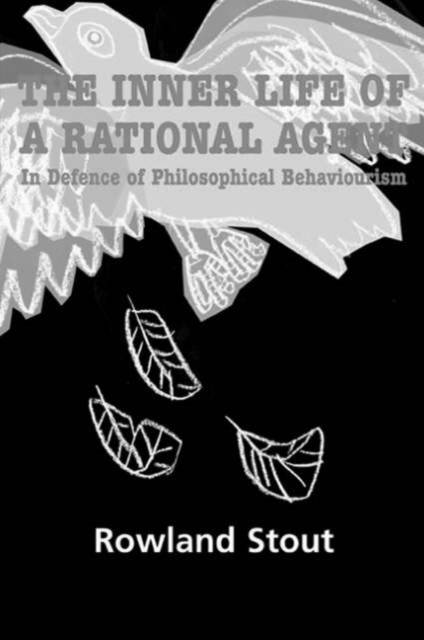
- Afhalen na 1 uur in een winkel met voorraad
- Gratis thuislevering in België vanaf € 30
- Ruim aanbod met 7 miljoen producten
- Afhalen na 1 uur in een winkel met voorraad
- Gratis thuislevering in België vanaf € 30
- Ruim aanbod met 7 miljoen producten
Zoeken
The Inner Life of a Rational Agent
In Defence of Philosophical Behaviourism
Rowland Stout
Hardcover | Engels
€ 209,45
+ 418 punten
Omschrijving
A radical approach to the philosophy of mind, in which states of mind are identified with dispositions to behave in certain ways.The approach taken by Rowland Stout is a thoroughly up-to-date version of behaviourism, although not a form of behaviourism that denies the existence of consciousness, free will, rationality, etc., nor aims to reduce these to other sorts of things. Properly understood, the idea of being disposed to behave in a certain way is seen to be exactly as rich and interesting as the idea of being in a certain state of mind. The fact that our ways of behaving are sensitive to practical rationality is taken to be an essential aspect of our nature as conscious agents. And in describing such a version of practical rationality Stout claims we are describing the mental state of someone whose behaviour is sensitive to it.His account of behaviourism rests on two central notions - that of a causal disposition to behave and that of sensitivity to practical rationality. He explains and develops these notions in some detail, and then uses them to construct powerful and original accounts of belief, intention, knowledge, perception and consciousness.Key Features* A systematic and completely original theoretical approach to the philosophy of mind* A re-evaluation of the history of the philosophy of mind based on a rejection of the generally accepted arguments in the 1960s and 1970s used by functionalists against behaviourists* A serious engagement with the intuitively compelling issues concerning behaviourism.
Specificaties
Betrokkenen
- Auteur(s):
- Uitgeverij:
Inhoud
- Aantal bladzijden:
- 224
- Taal:
- Engels
Eigenschappen
- Productcode (EAN):
- 9780748623433
- Verschijningsdatum:
- 3/04/2006
- Uitvoering:
- Hardcover
- Formaat:
- Genaaid
- Afmetingen:
- 161 mm x 235 mm
- Gewicht:
- 508 g

Alleen bij Standaard Boekhandel
+ 418 punten op je klantenkaart van Standaard Boekhandel
Beoordelingen
We publiceren alleen reviews die voldoen aan de voorwaarden voor reviews. Bekijk onze voorwaarden voor reviews.











